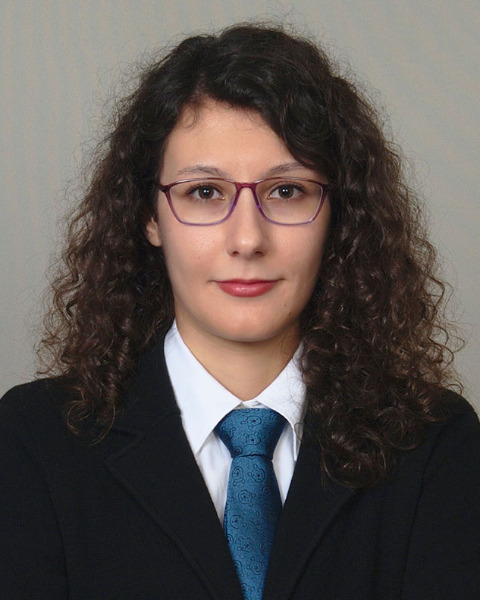HPB
P32: JNK inhibition reprograms the tumor-immune-microenvironment to overcome chemoresistance in PDAC

Edmond W. Box, III, MD
Resident
UM
miami, Florida, United States
Edmond W. Box, III, MD
Resident
UM
miami, Florida, United States
Edmond W. Box, III, MD
Resident
UM
miami, Florida, United States- SS
Samara Singh, BS
PhD Candidate
University of Miami School of Medicine - Miami, FL, United States - VT
Vanessa Tonin Garrido, Ph.D.
Postdoc
UM, United States - SM
Siddharth Mehra, Ph.D.
Postdoc
UM, United States 
Haleh Amirian, MD, MS
Post-Doc
University of Miami School of Medicine - Miami, FL, Florida, United States- ED
Erin M. Dickey, MD, MBS
Post Doctoral Fellow
Department of Surgery, University of Miami Miller School of Medicine, United States - MM
Mary Martos, MD
Resident
University of Miami Miller School of Medicine, Sylvester Comprehensive Cancer Center., United States - NN
Nagaraj Nagathihalli, PhD
Research Associate Professor
University of Miami School of Medicine - Miami, FL, United States 
Jashodeep Datta, MD (he/him/his)
Assistant Professor of Surgery
Department of Surgery, University of Miami Sylvester Comprehensive Cancer Center
Pinecrest, Florida, United States- NM
Nipun B. Merchant, MD
Surgical Oncologist
Department of Surgery, University of Miami, United States
Oral Poster Presenter(s)
Submitter(s)
Author(s)
The major contributors to therapeutic resistance that have been difficult to overcome in PDAC are mutations in the KRAS oncogene, the presence of a dense desmoplastic stroma that acts as a barrier to drug delivery and effector immune cell infiltration, and the immunosuppressive tumor microenvironment (TME) that renders the tumor ineffective to immunotherapy. We have identified that the c-Jun N-terminal kinase (JNK) pathway, a major signaling cascade of the MAPK pathway, is overexpressed in PDAC and is further upregulated with standard chemotherapy treatment, serving as a key mechanism of therapeutic resistance. JNK also regulates the maturation and activity of T cells and synthesis of pro-inflammatory cytokines such as IL-6 and TNF-α. We sought to investigate if JNK inhibition (JNKi) overcomes chemoresistance and investigate its effects on the inflammatory stroma and immunosuppressive TME of PDAC.
Methods: JNK and c-Jun activity was evaluated via immunohistochemistry and Western Blot analysis of human and murine tissue samples. Pharmacologic JNKi was achieved using an irreversible JNK inhibitor, JNK-IN-8, in multiple PDAC cell lines. Inflammatory CAF (iCAF) activation was determined via qPCR and immunofluorescence in a dual reporter iCAF and myofibroblastic CAF (myCAF) cell line when stimulated with TNF-a and TGF-b, respectively. An orthotopic mouse model of PDAC was treated with vehicle, JNK-IN-8 (20mg/kg, daily IP), gemcitabine and paclitaxel (g-p) or the combination of gem-pac and JNK-IN-8 for 4 weeks and tumors harvested for downstream analysis.
Results:
In vitro, JNKi reduces tumor cell growth and proliferation and prevents iCAF polarization via TNF-a stimulation in a dual reporter CAF model. In vivo, JNKi alone results in significantly reduced tumor burden, decreased iCAF polarization and increased intratumoral CD8+ T cell infiltration in the TME. In combination with gem-pac, JNKi significantly enhances anti-tumor effects of chemotherapy alone and attenuates chemotherapy-induced iCAF polarization, overcoming chemoresistance.
Conclusions: These findings provide compelling evidence to explore JNKi as a novel treatment strategy to overcome therapeutic resistance through modulation of the stromal and immune microenvironment in PDAC. We further show potential for combining immune checkpoint inhibition therapy with chemotherapy plus JNKi to further enhance therapeutic efficacy.
Learning Objectives:
- Describe the changes seen within the tumor microenvironment of PDAC and the inherent challenges this poses to effective therapy of this disease which leads to poor clinical outcomes for patients.
- Correlate how JNKi attenuates the generation of a desmoplastic stroma in PDAC and helps overcome the inherent chemoresistance of this tumor.
- Discuss potential future implications of combination of JNKi, chemotherapy, and aPD1 therapy to enhance therapeutic efficacy.
